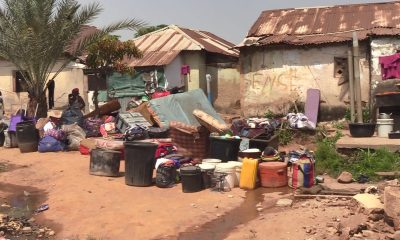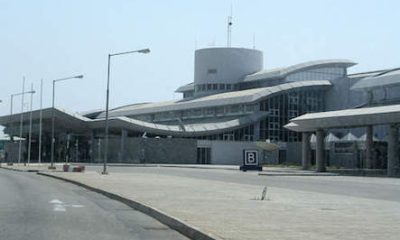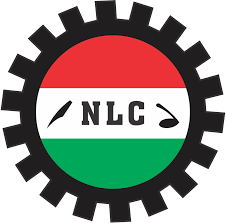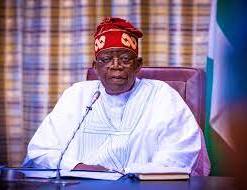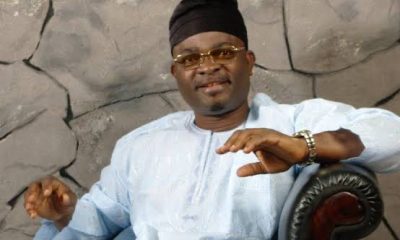Education
JAMB to introduce self-service registration outlets in Abuja, Lagos

The Joint Admissions and Matriculation Board (JAMB), says it plans to introduce self-service registration outlets in Abuja and Lagos to leverage the digital competence of its computer-savvy candidates.
JAMB disclosed this in its Weekly Bulletin from the Office of the Registrar, on Monday in Abuja.
It said that the system is expected to reduce crowds at its accredited Computer-Based Tests (CBT) Centres in both cities.
The idea, the board explained, is to advance the digital competence of candidates who can do the registration on their own.
It added that it is also to expand the registration access points, in line with the extant federal government’s COVID-19 protocols.
The board expressed confidence that the service provider, Bankfort, had assured of an immense potential of the seamless registration mode.
Similarly, JAMB also stated that it is set to incur not less than N50 million as added commission to its financial vendors.
This followed the introduction of its cashless regime in its 2022 registration exercise.
The bulletin quoted the Registrar of the board, Prof. Is-haq Oloyede, as saying that the additional financial burden was the price the board is prepared to pay.
This, Oloyede stated, followed the board’s concern to the plight of Unified Tertiary Matriculation Examination (UTME), and Direct Entry (DE) candidates in the hands of shylock CBT centre owners.
He said: “The measure would put a stop to other sharp practices that usually follow the payment of direct service charges for registration at these centres.”
He also added that candidates are expected to purchase an e-PIN for N3,500 as subsidized by the federal government, N500 compulsory reading text and a N700 regulated charge for CBT centres.
“All the purchases cost N4,700 as candidates are expected to now pay the regulated N700 charge for CBT centres along with the cost for e-PIN.
“The board would later transmit all accrued entitlements to respective CBT centres on a weekly basis or any timeframe agreeable to respective centres, to curtail all noticeable infractions.”
Oloyede also stated that, while the board now spearheads the collection of the N700 service charge on behalf of the centres, it would be taking on an additional responsibility of N25 commission.
He said that the N25 commission amounted to over N50 million in 2021.
Oloyede, however, urged all financial institutions to be involved in the UTME/DE registration to live up to expectation.
According to him, the vendors would be held responsible for any act of misdemeanor or infraction committed by their agents. (NAN)
Education
Benue Orders Refund of N106,000 WAEC/NECO Fees charged by School

The Benue State Government, through the Education Quality Assurance and Examinations Board, BEQAE, has directed Jewel Model School, Makurdi, to immediately reverse the N106,000 being charged to parents for the registration of West African Examination Council, WAEC, and National Examinations Council, NECO, describing the levy as excessive and unjustifiable.
The directive followed a series of petitions from aggrieved parents who accused the school of imposing arbitrary examination fees.
Acting on the complaints, the Board summoned the school’s proprietor, principal and members of the Parents-Teachers Association, PTA executive to a meeting in Makurdi where they reportedly failed to justify the amount being demanded.
Speaking during the engagement, the Executive Secretary of BEQAEB, Dr. Terna Francis, clarified that the officially approved fee for WAEC registration was N28,000, while NECO was yet to announce its charges for the 2026 examinations.
“Schools are only permitted to collect officially approved examination fees, with a handling charge not exceeding N5,000 per examination,” Francis stated.
He further stressed that candidates were not mandated to register for both WAEC and NECO, noting that such decisions should be left to parents and students.
“Registration for WAEC and NECO is optional, not compulsory. Any additional costs must be transparently discussed and mutually agreed upon by parents, not imposed without consultation,” he added.
Francis also expressed concern over reports that parents at the school had been denied platforms to air their views, alleging that PTA meetings had not been held for nearly two years and that parents were restricted from commenting on the school’s WhatsApp communication platform.
He equally condemned the practice of routing school and examination payments through the proprietor’s personal bank account, describing it as a breach of accountability and transparency.
“Such practices undermine proper auditing and are unacceptable in a regulated educational system,” he said.
Francis consequently, directed the Director of Enforcement and Compliance Operations, Rev. Fr. Dr. Terungwa Tor, to place the school under close monitoring to ensure full compliance with the Board’s directives.
Warning against the exploitation of parents, Francis noted that schools found imposing undue financial burdens on learners risk severe sanctions, including the withdrawal of their operating licenses.
“These exploitative practices only worsen the problem of out-of-school children, which the government is determined to address,” he said.
Education
UNIZIK: Students Urge FG to Implement Industrial Court Judgment, Reinstate Odoh as VC

Some students of Nnamdi Azikiwe University (UNIZIK), Awka, have called on the Federal Government to fully implement the judgment of the National Industrial Court by reinstating Professor Bernard Odoh as Vice-Chancellor of the institution.
The students, operating under the aegis of the Nigerian Students and Youth Association, UNIZIK chapter, urged the Minister of Education to act without further delay in reinstating Professor Odoh, in strict compliance with the court’s ruling.
President of the group, Chisom Nwangwu, recalled that Professor Odoh was removed from office by the Federal Ministry of Education following allegations that he was not a professor and therefore unqualified to occupy the position.
However, he said the National Industrial Court had since affirmed that Professor Odoh was duly promoted to the rank of professor in 2015 and consequently ordered that all his rights, entitlements and privileges be fully restored.
Nwangwu stressed that respect for court judgments is fundamental to nation-building and should not be treated as optional, urging Nigerians and government institutions to obey court orders if the country is to be firmly rooted in the rule of law.
He expressed concern that the continued failure to implement the court’s ruling, especially in a situation where the office of the Vice-Chancellor was neither legally nor practically vacant, sets a dangerous precedent.
“This persistent disregard for a valid court order undermines democratic values and sends the wrong signal to citizens. Such actions should not be allowed to define us as a people or as a democratic society,” Nwangwu said.
He noted that Professor Odoh is the first alumnus of Nnamdi Azikiwe University to be appointed Vice-Chancellor, describing his removal as regrettable and driven by what he termed malicious claims aimed at frustrating a young academic with a progressive vision for the development of the university.
The student leader also appealed to President Bola Tinubu to intervene in the matter, noting that his administration is anchored on the principles of justice, fairness and respect for the rule of law.
According to him, such an intervention would help reaffirm public confidence in democratic institutions and reassure young Nigerians that justice, fairness and equality before the law remain attainable in the country.
| ReplyReply allForwardAdd reaction |
Education
NUC Opens Nigeria’s University Space to Foreign Institutions
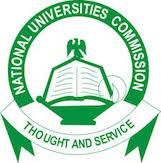
The National Universities Commission (NUC) has lifted the embargo on the establishment and operation of foreign universities in Nigeria, a move aimed at attracting foreign direct investment and boosting the global competitiveness of the country’s higher education system.
The Executive Secretary of the NUC, Professor Abdullahi Yusufu Ribadu, announced the decision at the weekend during the 10th convocation ceremony of Gregory University, Uturu, Abia State.
He said the policy shift was designed to deepen international collaboration and strengthen the quality of university education in Nigeria.Represented at the event by Offor Chukwuemeka, Ribadu explained that foreign universities would be allowed to operate in Nigeria through six approved partnership models: franchise arrangements, branch campuses, twinning or articulation programmes, open and distance learning, acquisition, and teaching institutions.
He said the Commission had also introduced a Code of Governance for private universities to ensure uniform standards, transparency, and accountability in their operations. In addition, Ribadu noted that the NUC had carried out major curriculum reforms, replacing the Benchmark Minimum Academic Standards (BMAS) with the Core Curriculum and Minimum Academic Standards (CCMAS).
Under the new framework, he said, the NUC provides 70 per cent of compulsory core courses required for graduation, while universities are allowed 30 per cent flexibility to customise their curricula in line with their areas of expertise and emerging global trends.
The NUC boss emphasised that the reforms were geared towards equipping Nigerian graduates with 21st-century skills and enhancing their employability. He commended Gregory University for its contributions to educational innovation and development.
Abia State Governor, Dr. Alex Otti, in his remarks, praised the founder of the institution, Professor Gregory Ibe, for his vision and commitment to quality education. Represented by the Commissioner for Tertiary Education, Professor Uche Eme Uche, the governor reaffirmed his administration’s support for educational transformation in the state.
The Vice-Chancellor of Gregory University, Professor Cele Njoku, disclosed that the university had grown from three colleges to 12 in 13 years, now boasting over 53 academic departments. She added that all eight academic programmes submitted to the NUC in 2024 received full accreditation, while new courses, including Artificial Intelligence and major foreign languages, had been introduced.
Founder of the university, Prof. Gregory Ibe, represented by the Pro-Chancellor, Prof. Augustine Uwakwe, said the institution was established to make quality education accessible to Nigerians and pledged continued investment in education.
The overall best graduating student, Master Onyechere Chinedum Yadirichukwu, who graduated with a CGPA of 4.91, urged young Nigerians to take responsibility for shaping the nation’s future.
The convocation ceremony also featured the award of honorary doctorate degrees to former Enugu State Governor Ifeanyi Ugwuanyi; Chairman of the Abia State Council of Traditional Rulers, HRM Eze Linus Nto Mba; and Chairman of the Manufacturers Association of Nigeria, Imo State chapter, Dr Okenze Sylvester Obinna.



